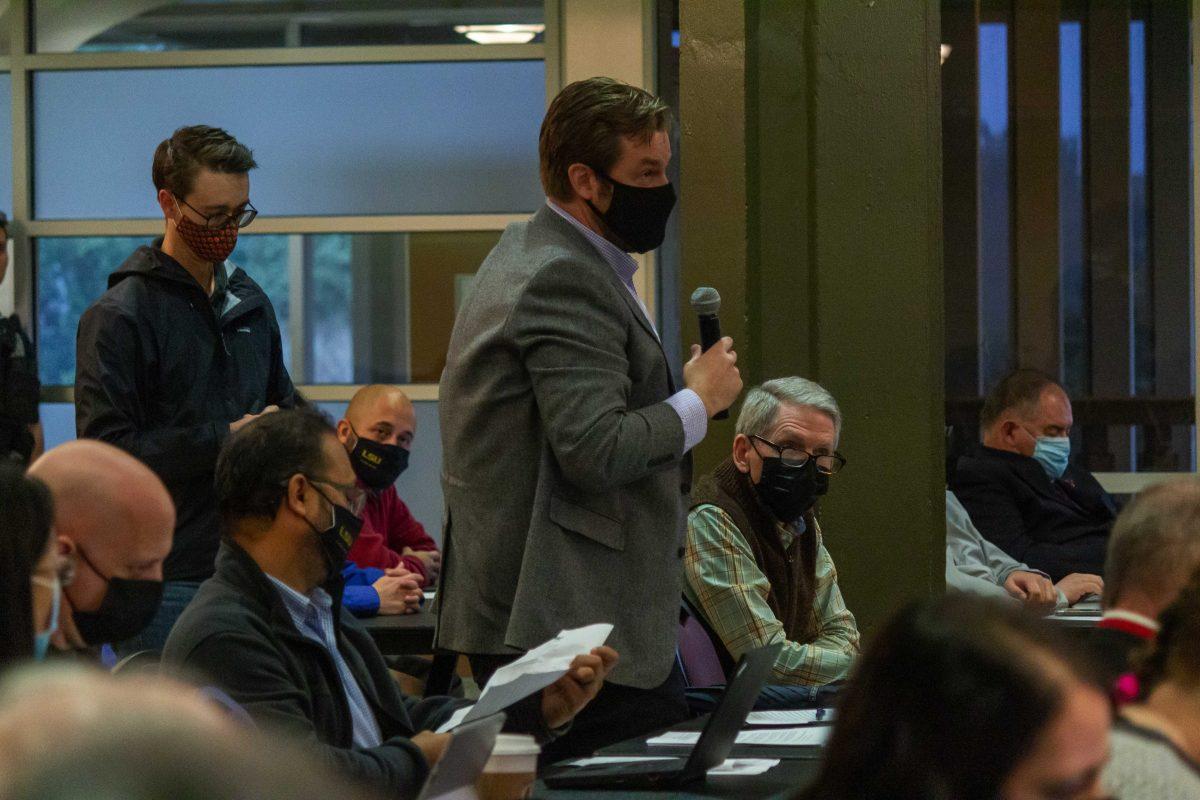A resolution introduced in the Louisiana Senate would create a task force to study tenure policies at the state’s colleges and universities, worrying LSU faculty members that lawmakers may pass laws aimed at limiting academic freedom.
SCR6, authored by Sen. Stewart Cathey, a Monroe Republican, would create the “Task Force on Tenure in Postsecondary Education.” The task force would report back to lawmakers with suggestions on changing tenure policies in the state.
The resolution includes language that suggests that Cathey is concerned professors are indoctrinating students and not offering a variety of viewpoints. Cathey did not respond to The Reveille’s request for comment.
“Postsecondary students should be confident that they are being exposed to a variety of viewpoints, including those that are dissenting,” the resolution reads. The resolution seeks to ensure “faculty members are not using their courses for the purpose of political, ideological, religious or anti-religious indoctrination.”
Though the resolution claims to study tenure to support academic freedom, LSU faculty say it will have the opposite effect.
“They are seeking to weaken tenure to use our job status as a cudgel to compel or limit speech in a way that current tenure standards do not permit,” Daniel Tirone, an LSU political science professor wrote to fellow Faculty Senate members in an email chain obtained by The Reveille.
The resolution comes months after the University System of Georgia implemented dramatic tenure reforms some referred to as “the death of tenure.”
Georgia’s public university system allows college administrators to fire tenured professors with little to no input from faculty members, a direct challenge to traditional tenure policies and the only one of its kind in the country.
At the time of Georgia’s tenure policy changes in October 2021, Tirone warned that such changes in Georgia could cause a ripple effect that could reach Louisiana.
“I can see…that at some point in time someone may suggest to the Louisiana Board of Regents that it might be time to review tenure and maybe implement some of these changes as they were implemented in Georgia,” Tirone said in an interview in October.
Those changes put LSU faculty on high alert, and Cathey’s resolution comes as no surprise to some. The subjects of tenure and threats to academic freedom have come up consistently during Faculty Senate meetings, but professors say action is needed now.
“The survival of tenure in the coming years may depend on this faculty learning to defend itself,” Bob Mann, a mass communication professor, wrote in an email to faculty senators. “That means not waiting on the LSU president or board chair to give us permission to enter the political fray. It is dangerous for us to assume that our interests and those of President Tate and the LSU Board align in any meaningful way. They don’t.”
Mann argued that now is the time for faculty to take a page out of former LSU basketball coach Will Wade’s book and “boot up.”
Faculty Senate President Mandi Lopez cautioned faculty senators against reacting strongly to the resolution, as she believes it may just be a political stunt to get a rise out of professors and use their anger as justification for stricter tenure policies.
“Another point to consider is the intent of political (or other affiliate) strategists,” Lopez wrote in an email. “A tried-and-true maneuver is to ‘poke’ or ‘bait’ a perceived opponent to elicit a predictable response and thereby validate an action meant to limit, restrain or otherwise diminish their strength.”
Lopez also pointed out that the resolution calls for two members of the Association of Louisiana Faculty Senates to participate in the task force.
Tirone retorted that two representatives was not sufficient, given the scope of the task force.
“Two seems a paltry showing and one skewed towards advantaging the interests of political actors who will have a substantial numerical advantage,” Tirone wrote in response.
Several faculty members have vowed to bring up the task force for discussion at upcoming Faculty Senate and Faculty Council meetings.





